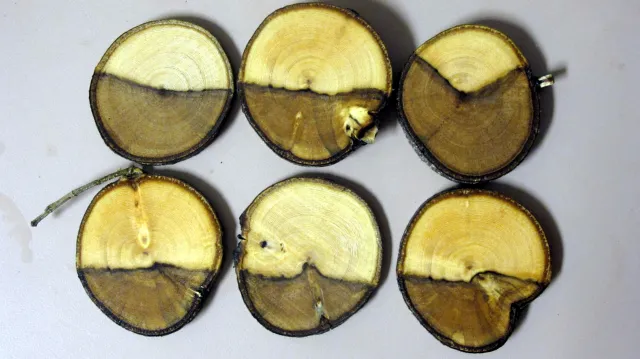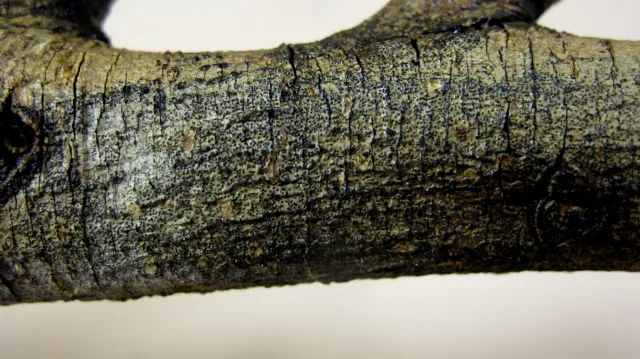Botryosphaeria canker, sometimes called Bot canker, is a common fungal disease that can affect many tree species including ash, eucalyptus, fig, maple, pistachio, and walnut.
Plants infected with this disease typically develop cankers (dark sunken lesions in the bark) and can lose branches. The whole plant is not typically killed. The first symptoms of Botryosphaeria infection are yellowing leaves and a thin canopy. As the disease advances through the plant, dead branches appear.
To confirm Bot canker, you need to check the branches and trunk for wedge-shaped dark staining under the bark that extends into the heartwood, and fungal fruiting bodies, which look like small black dots scattered across the bark.
The fungus can spread by water splashing spores from one part of the plant to another, or from one plant to another. Plants may also become infected through pruning wounds if pruning occurs just before or during rainfall.

Managing Bot Canker
Managing Bot canker relies on proper plant care. Protect trees from injury to their limbs, roots, and trunk. Provide a good growing environment and appropriate cultural care, including supplemental irrigation as needed during low rainfall periods. Prune when no rain is forecast to decrease infection potential.
Successive dry years can make Bot canker disease worse. Providing occasional deep watering during the dry season can help the tree fight off the disease. Plants grown under drought stress conditions often have dead branches that have not been pruned away that may contain fungal fruiting bodies.

Remove and dispose of dead or dying branches. Since spores are usually formed in the center of the canker, prune a few inches below the canker on infected tree and shrub branches. Disinfect pruning tools if discoloration is present where the cut was made and cut further back. If discoloration has reached the main stem, consider removal or replacement of the affected plant.
For more details, see Pest Notes: Botryosphaeria Canker at https://ipm.ucanr.edu/home-and-landscape/botryosphaeria-canker/pest-notes.
Belinda Messenger-Sikes,
Urban IPM Writer/Editor
bmsikes@ucanr.edu
[Featured in the Summer 2025 issue of the Green Bulletin]

